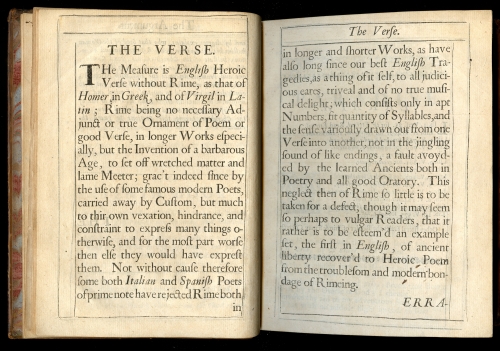
John Milton (1608–1674)
In the note on ‘The Verse’, Milton justifies his decision to write Paradise Lost in blank verse, that is, unrhymed lines of iambic pentameter. This choice of poetic form cut across contemporary fashion, which preferred the chiming, closed couplets favoured by Dryden, Restoration playwrights, and the subsequent generation of authors. Milton makes a claim for blank verse as the true successor to the heroic hexameters of Homer and Virgil: an ‘ancient liberty’ freed from the ‘modern bondage of rhyming’.
